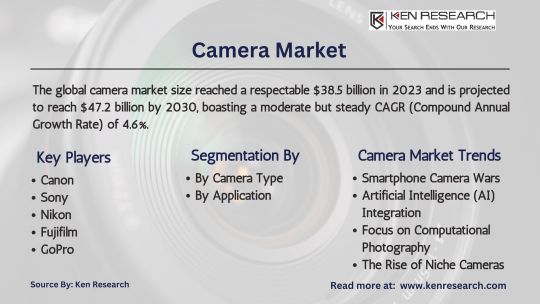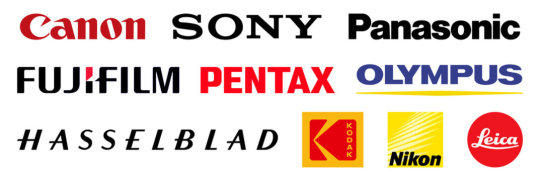#digital marketing degree
Text

Digital Marketing Degree In Zirakpur at CADL
Ended up learning almost computerised promoting strategies and methodologies by selecting a digital marketing degree in CADL Zirakpur . Get the in-demand abilities you wish to succeed within the advanced showcasing segment
0 notes
Text

Best digital marketing agency in Chennai
#best digital marketing agency in chennai#best digital marketing agency#digital marketing course in chennai#online digital marketing courses#top digital marketing company#digital marketing course#digital marketing certificate#online marketing courses#digital marketing degree#fundamentals of digital marketing#digital marketing google#learn digital marketing#digital marketing classes#digital marketing course near me#best digital marketing courses
0 notes
Text
What will Malaysians Study in a Digital Marketing Degree Course?
Learn About the Digital Marketing Degree Programme at Private Universities in Malaysia
The degree programme in Digital Marketing help to bring together the aspects of digital media and creativity in marketing as well business promotion.
A degree in Digital Marketing will equip students with the knowledge and skills needed to apply digital marketing techniques to help companies market and…

View On WordPress
#digital marketing#digital marketing course#digital marketing degree#study digital marketing in Malaysia
0 notes
Text
5 Benefits of Pursuing a Digital Marketing Masters Degree

In today’s digital age, the demand for qualified digital marketing professionals continues to rise. As businesses shift their focus to online marketing, there is a growing need for individuals with advanced knowledge and skills in the field. Pursuing a digital marketing master’s degree can provide a competitive edge and offer numerous benefits for those seeking a career in this exciting and rapidly evolving industry. Here are five benefits of pursuing a digital marketing master’s degree:
Increased Job Opportunities
Earning a master’s degree in digital marketing can open up a world of job opportunities in various fields such as advertising, public relations, marketing, and sales. With a digital marketing degree, graduates can land positions in companies of all sizes, including start-ups and well-established corporations. The skills and knowledge gained from this program can help graduates excel in their digital marketing careers and stand out from other applicants in a crowded job market.
Greater Earning Potential
As digital marketing continues to grow and evolve, there is a high demand for skilled professionals in the field. Pursuing a digital marketing master’s degree can significantly increase earning potential. According to PayScale, the average salary for individuals with a digital marketing master’s degree is over $70,000 per year. With experience, those salaries can increase significantly. Graduates with advanced degrees in digital marketing can also command higher salaries than those with only a bachelor’s degree.
Advanced Skills and Knowledge
Digital marketing master’s degree programs are designed to provide students with an in-depth understanding of digital marketing strategies, tools, and techniques. Students learn advanced skills such as data analysis, search engine optimization, social media marketing, content creation, and more. These skills are critical for individuals looking to succeed in today’s digital marketplace. The knowledge and expertise gained from a digital marketing master’s degree program can help students stay ahead of the competition and make them valuable assets to their employers.
Professional Networking Opportunities
Pursuing a digital marketing master’s degree can provide students with the opportunity to network with professionals in the field. Many programs offer internships, guest speakers, and other events that connect students with industry leaders. Building a strong professional network can be essential for career advancement in digital marketing. Networking can lead to job opportunities, mentorship, and valuable connections in the industry.
Flexibility
Many digital marketing master’s degree programs offer flexible learning options, such as online courses, evening classes, and part-time schedules. This flexibility allows students to pursue their degree while working or fulfilling other obligations. Online courses can also be completed from anywhere in the world, making it easier for students to balance their studies with their personal and professional lives.
In conclusion, pursuing a digital marketing master’s degree can provide numerous benefits for individuals looking to succeed in today’s digital marketplace. Graduates can expect increased job opportunities, greater earning potential, advanced skills and knowledge, professional networking opportunities, and flexibility in their studies. With the growing demand for qualified digital marketing professionals, earning a master’s degree in digital marketing can be a wise investment in one’s future career.
0 notes
Text
no one touch me
#goodbye goodbye you were bigger than the whole sky#putting my digital marketing degree in progress to good use by posting on tumblr so that people will go read possums story#cuz that’s digital marketing for sure
3 notes
·
View notes
Text
Working in marketing is hell on an average day but TODAY. TODAY... my agency is doing a "holiday brainstorming meeting" for our clients so we can start thinking about the end of the year and what we can do for them
This meeting is scheduled for 1pm to 4 pm. On a day where we already have ~2.5 hours of meetings.
And SOMEONE. STARTED PLAYING. CHRISTMAS MUSIC. THROUGHOUT THE OFFICE.
And I am OUT of my ADHD MEDS so I am DISTRACTED and BOTHERED and LOSING MY FUCKING MIND
#marketing#digital marketing#i feel like this will be relatable to some people#and for others it should be a warning#if you get a comm/english/whatever degree without a plan you might end up here#try to avoid it 🙃🙃🙃
4 notes
·
View notes
Text
100% Download Free video course made for you “ClickBank Marketing Secrets” with Master Resell Rights.
About Course: Take your career into your own hands and learn to start a new profitable business online and make big passive MONEY. The idea is to start part-time work and a hustle-free business. This will make you successful enough to turn you into a MILLIONAIRE. Owning this business will give you FREEDOM to make MONEY from anywhere in the world. Read more
#coursera free courses#mooc#udemy courses#udemy free courses#digital marketing course#online class#free online courses#online learning#fundamentals of digital marketing#online psychology degree#self paced#digital marketing certificate#Clickbank marketing#affiliate marketing tutorial#how to make money online#clickbank
3 notes
·
View notes
Text

#lexicon ima#vfx course in Pune#degrees in animation#3d animation studio in Pune#graphic design courses in Pune with placement#ui ux design course in Pune#digital marketing course#vfx course in pune#vfx colleges in pune#vfx institute in pune#vfx classes in pune#vfx animation course#bsc in animation and vfx#visual effects course#vfx courses#vfx courses in pune#vfx and animation course
0 notes
Text
Digital Marketing Degree In Zirakpur at CADL
Ended up learning almost computerised promoting strategies and methodologies by selecting a digital marketing degree in CADL Zirakpur . Get the in-demand abilities you wish to succeed within the advanced showcasing segment
0 notes
Text
The Crucial Role of 360-Degree Marketing in the Fashion Industry

In today’s fast-paced and highly competitive fashion landscape, businesses are constantly seeking innovative ways to captivate consumers and stand out amidst a sea of options. Amidst this pursuit, 360-degree marketing has emerged as a powerful strategy, offering a comprehensive approach to engage with consumers across various channels. From social media platforms to traditional advertising avenues, 360-degree marketing encapsulates a holistic approach that ensures brands leave no stone unturned in their quest for consumer attention and loyalty.
Understanding 360-Degree Marketing
360-degree marketing is not merely a strategy; it’s a philosophy that revolves around the idea of creating immersive brand experiences for consumers. Unlike traditional marketing approaches that focus on a single channel or medium, 360-degree marketing adopts a multi-faceted approach, encompassing everything from digital marketing and social media to print ads, events, and beyond.
Harnessing Digital Platforms
In an era dominated by smartphones and social media, digital platforms play a pivotal role in shaping consumer perceptions and behaviors. Fashion brands leverage these platforms to showcase their products, engage with their audience, and build a strong online presence. From Instagram stories featuring behind-the-scenes glimpses of fashion shoots to interactive Facebook Live sessions with designers, digital marketing allows brands to establish meaningful connections with consumers in real-time.
Leveraging Social Media Influencers
One of the most powerful aspects of 360-degree marketing in the fashion industry is its ability to harness the influence of social media personalities and influencers. These individuals command large followings and hold significant sway over consumer preferences. By collaborating with influencers who align with their brand identity, fashion companies can amplify their reach and credibility, reaching new audiences and driving engagement in the process.
Embracing Experiential Marketing
In addition to digital initiatives, 360-degree marketing services encompass experiential marketing efforts that aim to create memorable and immersive brand experiences. Fashion brands often host events, pop-up shops, and runway shows to engage directly with consumers and showcase their latest collections in a tangible way. These experiences not only allow brands to forge deeper connections with their audience but also serve as valuable opportunities for consumer feedback and market research.
Integrating Traditional Advertising Channels
While digital and experiential marketing have become increasingly prominent, traditional advertising channels still hold relevance in the fashion industry. Print ads, television commercials, and outdoor billboards offer brands a chance to reach broader audiences and reinforce their messaging through visual storytelling. By integrating these traditional channels into their marketing mix, fashion companies can ensure maximum exposure and resonance across diverse demographics.
Driving Omni-Channel Engagement
At the heart of 360-degree marketing lies the concept of omni-channel engagement, which involves seamlessly integrating various touchpoints to create a cohesive brand experience. Whether a consumer discovers a brand through a social media ad, visits their website to browse products, or encounters their storefront in a shopping mall, the goal is to provide a consistent and personalized experience at every interaction point. This not only enhances brand recall and loyalty but also facilitates a smoother path to purchase for consumers.
The Bottom Line
In an industry as dynamic and competitive as fashion, staying relevant and top-of-mind requires a strategic and multi-dimensional approach to marketing. 360-degree marketing offers fashion brands the tools and framework to engage with consumers on multiple fronts, fostering deeper connections, driving brand affinity, and ultimately driving sales. By embracing digital platforms, leveraging social media influencers, embracing experiential marketing, integrating traditional advertising channels, and driving omni-channel engagement, fashion companies can position themselves for success in an ever-evolving landscape. As consumer preferences continue to evolve and new technologies emerge, the principles of 360-degree marketing will remain a cornerstone of effective brand communication and engagement in the fashion industry.
This comprehensive approach ensures that fashion brands leave no stone unturned in their quest for consumer attention and loyalty, fostering deeper connections, driving brand affinity, and ultimately, influencing purchasing decisions in a crowded marketplace.
Original Source: Here
0 notes
Text
Mastering the Art of Digital Marketing in Japan
Navigating the digital marketing landscape in Japan can be both intricate and rewarding. With a unique set of cultural norms and consumer behaviors, understanding the digital movements in this market can become the key differentiator between booming success and missed opportunities. In this article, we’ll explore some of the most potent trends that businesses in Japan are leveraging to captivate their audiences and dominate in the digital space.
Influencer Marketing in the Land of the Rising Sun
Strategic partnerships with influencers in Japan are not just a passing trend; they are an essential facet of modern-day marketing. These influencers, or 'Key Opinion Leaders' as they are described in the Japanese business scene, now wield considerable power in shaping consumer preferences and purchase decisions. Brands in Japan are keen on building narratives through influencers who resonate with their target demographics. By creating authentic content that is seamlessly blended with the influencer's personal brand, companies are seeing their products endorsed and social currency soar.
One crucial aspect of influencer marketing in Japan is the cultivation of long-term relationships. Brands understand the value of sustained exposure and historically tested loyalties that can be garnered through a continuous partnership. This strategy ensures that the brand gets integrated into the influencer's digital persona over time, which consequently boosts brand recall and trust.
The Visual Storytelling Imperative with Video Marketing
Visual content reigns supreme in the Japanese market where captivating narratives hold the greatest sway. Videos, whether on platforms like YouTube, TikTok, or brand-hosted websites, have become unparalleled tools for customer engagement and story-weaving. In a culture steeped in rich visuals and a deeply rooted manga and anime tradition, video marketing has found an extremely receptive audience.
Local businesses have begun to craft their stories in a visual language, balancing the art of the tale with the science of selling. Animation, a genre with a rich heritage in Japan, is also finding new life in corporate storytelling. It is not uncommon for businesses to employ anime styles to explain complex concepts or to appeal to a younger demographic. By leveraging the power of storytelling through these visually arresting mediums, brands are forging deeper connections with their consumers.
Unveiling the Potential of Data-Driven Marketing in Japan
Japanese companies have long harbored a reputation for meticulous attention to detail, and digital marketing is no exception. Data-driven approaches have become indispensable tools for understanding consumer behavior and preferences. By analyzing the myriad data points, marketers can map out customer journeys and design targeted campaigns that resonate on a personal level.
Through data analytics, brands can track the performance of their marketing initiatives and fine-tune their strategies for optimal results. The 'kaizen' philosophy, which focuses on continuous improvement, is alive and well in the digital marketing sphere. Marketers constantly refine their tactics and content to ensure that they remain aligned with the fast-evolving tastes and preferences of Japanese consumers.
Mobile Marketing Redefined in the Japanese Context
In an archipelago where mobile subscription rates far exceed the global average, the significance of mobile marketing cannot be overstated. Japanese consumers are glued to their smartphones, making them a prime target for mobile-optimized campaigns and content. Those who wish to engage with this audience effectively must ensure a seamless, user-friendly experience across all mobile platforms.
Localization is critical in mobile marketing, as it allows brands to cater to the unique preferences and needs of the Japanese audience in real-time. Customizing content, offers, and even the design to reflect the local culture and language can significantly enhance consumer engagement and brand credibility.
A Personal Touch in Marketing: The Age of Customer Experience
Personalization in Japanese markets goes beyond just inserting a customer's name in an email—it's about tailoring the entire marketing experience. Businesses personalize their offerings based on a variety of factors, including past purchases, browsing history, and even the time of day. Such attention to detail creates a more intimate connection with consumers, thereby increasing brand loyalty and customer lifetime value.
The concept of ‘omotenashi’—the Japanese approach to hospitality that anticipates the needs of a guest—seeps into digital marketing as well. Brands that adopt this mind-set in their online interactions are often rewarded with a loyal following. By delivering beyond the expected, businesses can ensure that each customer feels valued and their experiences become stories told to friends, family, and internet pen pals alike.
Will Your Business Ride the Digital Wave in Japan?
Digital marketing in Japan is a vibrant domain that marries the traditional (respect for the culture, tailored customer relationships) with the cutting-edge (data analytics, mobile technology). For businesses navigating this world, the ability to merge these elements into a coherent, resonant strategy is the true path to success.
In this era, where digital footprints often outshine physical ones, the mastery of these trends is becoming increasingly vital for businesses looking to make a substantial impact in Japan. Whether you run a local restaurant in Tokyo or manage a multinational corporation, your digital marketing approach could be the game-changer your brand needs to gain recognition in this unique and dynamic market landscape.
0 notes
Text
Camera Industry in 2024 :Trends, Segmentation and the Future Outlook
From capturing history-making moments to preserving precious memories, cameras have become an integral part of our lives. Fueling this visual storytelling is the ever-evolving camera market, encompassing a diverse range of technologies catering to everyone – from professional photographers to everyday users documenting their world. This blog delves into the current state of the market in 2024, analyzing its size, segmentation, key trends, and future outlook.
A Market with a Clear Focus on Innovation

The camera industry is constantly pushing the boundaries of imaging technology. According to a report by Ken Research, the global camera market size reached a respectable $38.5 billion in 2023 and is projected to reach $47.2 billion by 2030, boasting a moderate but steady CAGR (Compound Annual Growth Rate) of 4.6%. This growth signifies the continued demand for high-quality cameras and the emergence of specialized applications.
Camera Market Segmentation: Capturing Diverse Needs
The camera market segmentation based on various factors, reflecting the diverse needs of users and the wide variety of camera types available:
By Camera Type:
Action Cameras: Perfect for capturing fast-paced action and extreme environments, these compact and rugged cameras are popular among athletes and adventure enthusiasts.
Digital Camera Market: This segment remains a significant part of the overall market, catering to both professional and amateur photographers. Within digital camera market segment, further sub-divisions exist:
Mirrorless Cameras: These compact and feature-rich cameras are gaining significant traction with professionals and hobbyists alike due to their versatility and image quality. The global mirrorless camera market is expected to reach $22.4 billion by 2030.
DSLR Cameras: While facing increased competition from mirrorless cameras, these workhorses are still favored by some photographers for their ergonomics and optical viewfinders. However, advancements in mirrorless technology may lead to a decline in the DSLR market share in the coming years.
Specialty Cameras: This segment encompasses various niche cameras catering to specific applications:
360-Degree Cameras: These cameras capture immersive, spherical images and videos, gaining traction for virtual reality applications and creating panoramic views.The global 360-degree camera market is expected to reach $3.1 billion by 2030.
Drone Cameras: The rapid growth of the drone industry has fueled the demand for high-quality, lightweight cameras specifically designed for aerial photography and videography.The global drone camera market size is projected to reach $11.2 billion by 2030.
Acoustic Cameras: These specialized cameras use sound waves to create visual representations of sound sources, finding application in leak detection, industrial inspection, and scientific research. While not a mainstream market segment, acoustic cameras are expected to experience niche growth in specific industries.
By Application:
Consumer Cameras: Aimed at casual photographers and smartphone camera upgrades, these cameras offer basic functionality and ease of use.
Professional Cameras: High-end, feature-rich cameras catering to professional photographers who demand exceptional image quality, performance, and durability.
Security Cameras: A booming segment driven by increasing security concerns, encompassing surveillance cameras for home and business use. The global body camera market share, a sub-segment of security cameras focusing on law enforcement applications, is expected to reach $15.7 billion by 2030.
Automotive Camera Market: This niche market focuses on cameras used in advanced driver-assistance systems (ADAS) and autonomous vehicles.The global automotive camera market size is estimated to reach a staggering $42.1 billion by 2030.
Camera Module Market: The Power Behind the Pixels
The camera module market is a vital component of the overall camera industry. These miniature modules integrate the core imaging components (lens, sensor, and processing unit) into a compact package, facilitating their integration into smartphones, drones, and other devices. The global camera module market is expected to reach a massive $68.4 billion by 2030, highlighting its significance in the broader camera ecosystem.
Take a look at: Digital Cameras Market Research Reveals Trends, Segmentation, and Future Outlook
Camera Market Trends: Redefining the Future of Imaging
Several trends are shaping the future of the camera market:
Smartphone Camera Wars: The relentless improvement of smartphone cameras is challenging dedicated cameras for casual photography, especially in the low- to mid-range market segment.
Artificial Intelligence (AI) Integration: AI-powered features like auto-focus, subject recognition, and automatic image enhancement are becoming increasingly common, enhancing user experience and photographic capabilities.
Focus on Computational Photography: Smartphone manufacturers are pushing the boundaries of computational photography, combining multiple images to create high-quality photos, even in low-light conditions.
The Rise of Niche Cameras: Markets for specialized cameras like action cameras and 360-degree cameras are expected to grow, driven by specific use cases and a growing interest in immersive content creation.
Top Players in Camera Market: Capturing Market Share
The camera industry is a competitive landscape with established players vying for dominance. Some of the top players in camera market include:

Canon : A leading manufacturer of professional and consumer cameras, lenses, and imaging solutions.
Sony : Renowned for its innovative mirrorless cameras and strong presence in the smartphone camera sensor market.
Nikon: A traditional powerhouse in the DSLR market, also offering mirrorless cameras and optical equipment.
Fujifilm: Known for its high-quality X-series mirrorless cameras and Instax instant cameras.
GoPro: A pioneer in the action camera market, offering rugged and versatile cameras for capturing adventure.
Camera Market Future Outlook: A Focus on Innovation and Niche Markets
The camera market future outlook suggests continued growth, albeit at a moderate pace.
Smartphone Competition: Smartphone manufacturers will continue to push the boundaries of camera technology, impacting the lower-end of the dedicated camera market.
Niche Market Growth: Markets for specialized cameras like action cameras, 360-degree cameras, and drone cameras are expected to experience significant growth.
Focus on Innovation: Camera manufacturers will need to continuously innovate and differentiate themselves through features like AI integration, advanced image processing, and high-resolution sensors.
Beyond the Lens: The Merging Landscape
An interesting trend is the blurring lines between smartphone cameras and dedicated cameras. Smartphone manufacturers are incorporating multiple lenses and advanced features, while camera manufacturers are exploring smartphone-like connectivity and user interfaces.
This convergence presents both challenges and opportunities for the camera industry. Companies that can successfully adapt and innovate will be well-positioned to capture a share of the evolving photography market.
Conclusion: A Click into the Future
The camera market is a dynamic and ever-evolving landscape. While the dominance of dedicated cameras for casual photography may be challenged by smartphones, the industry is adapting and innovating to cater to professional needs, niche markets, and the growing demand for immersive content creation. As technology continues to advance, the future of the camera market promises exciting new ways to capture and share the world around us.
You can also read about: Opportunities and Trends in the $6.83 Billion Digital Camera Market
#Camera Market#Camera Industry#Camera Sector#Camera Market Size#Camera Market Segmentation#Digital Camera Market#automotive camera market size#drone camera market#body camera market share#camera module market#mirrorless camera market#360 degree camera market#acoustic camera market#action camera market#Camera Market Trends#Top Players in Camera Market#Camera Market Future Outlook
0 notes
Text
Get your brand online with our 360 degree digital marketing agency – Neoma Media
We are a digital advertising agency in Mumbai. We chase accelerated sustainable growth for brands globally with our internet marketing services in mumbai.
#digital advertising agency in Mumbai#online advertising agency Mumbai#360 degree digital marketing agency#internet marketing services in mumbai
1 note
·
View note
Text
.
0 notes
Text
In the thrilling world of digital marketing, SEO is the engine that drives success, and 360-degree solutions are the roadmap to victory. By harnessing the power of SEO and partnering with a top-tier digital marketing agency like VUI Live, you can turbocharge your growth strategies, expand your digital footprint, and connect with your audience on a whole new level. So buckle up, rev your engines, and get ready to embark on an exhilarating journey towards success—because the road ahead is yours to conquer with VUI Live by your side!
#digital marketing agency#360 degree digital solutions#360 digital marketing agency in Gurgaon#VUI Live
0 notes
Text

Unlock your potential with our dynamic online courses, designed to empower and elevate your skills. Dive into engaging content led by experts and embark on a journey of learning and growth from anywhere, anytime.
#advanced diploma courses#best online diploma courses#online bba degree#best digital marketing course#advanced diplomas#bba online course#iibms#advanced diploma in management#advanced diploma in business management#online bba course
0 notes